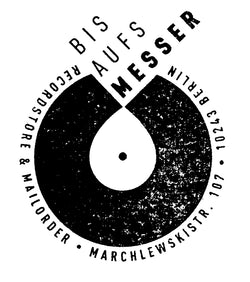Das Buch widmet sich der Geschichte des Musiklabels Free Music Production (FMP), das von 1968 bis 2010 als Berliner Plattform für die Produktion, Präsentation und Dokumentation von Musik Unvergleichliches geleistet hat. Ausgehend von vielen Gesprächen aus über dreißig Jahren mit wesentlichen Protagonisten wie Peter Brötzmann oder Jost Gebers erzählt Markus Müller die Erfolgsgeschichte einer Musiker-Initiative, die im Kontext der 1968er Ideen von Selbstorganisation und Selbstbestimmung entstand und über 40 Jahre lang erfolgreich international vernetzt arbeitete. Thematische Schwerpunkte sind dabei von der FMP entwickelte Formate wie das Total Music Meeting und der Workshop Freie Musik, die Tonträgerproduktion, die Beziehungen zu DDR-Musikern, FMP und Frauen, die international bahnbrechende Zusammenarbeit mit Cecil Taylor (der sich auch ein Text von Diedrich Diederichsen widmet) sowie die FMP und ihre interdisziplinären Grenzüberschreitungen. Dabei baut das Buch auf den großen, von Müller kuratierten, FMP Ausstellungen in München und Berlin auf, geht aber in vielen Aspekten weit darüber hinaus. Durch den uneingeschränkten Zugang zum FMP-Publishing Archiv in Borken finden sich unzählige erstveröffentlichte Dokumente und Fotos aus der Geschichte der FMP. Das 400 Seiten starke, großformatige Buch, gestaltet von Double Standards, hat mehr als 300 Abbildungen und präsentiert die FMP als den wichtigsten kulturellen und kulturpolitischen Beitrag Westberlins zum 20. Jahrhundert.
Deutsche Ausgabe
400 S., Großformat, Fotos
This book is dedicated to the history of the music label Free Music Production (FMP), which from 1968 to 2010 achieved incomparable things as a Berlin platform for the production, presentation and documentation of music. Based on many conversations from over thirty years with key protagonists such as Peter Brötzmann or Jost Gebers, Markus Müller tells the success story of a musicians‘ initiative that emerged in the context of the 1968 ideas of self-organization and self-determination and worked successfully in an international network for over 40 years. Thematic focal points include formats developed by the FMP such as the Total Music Meeting and the Workshop Freie Musik, the production of recordings, relations with GDR musicians, FMP and women, the internationally groundbreaking collaboration with Cecil Taylor (to which a text by Diedrich Diederichsen is also dedicated), as well as FMP and its interdisciplinary border crossings. In doing so, the book builds on the major FMP exhibitions in Munich and Berlin curated by Müller, but in many aspects goes far beyond them. Thanks to unrestricted access to the FMP-Publishing Archive in Borken, countless first-published documents and photographs from the history of the FMP can be found. The 400-page, large-format book, designed by Double Standards, has more than 300 illustrations and presents the FMP as West Berlin’s most important cultural and cultural-political contribution to the 20th century.
Foto Cover: Paul Lovens / Photo Cover: Paul Lovens

